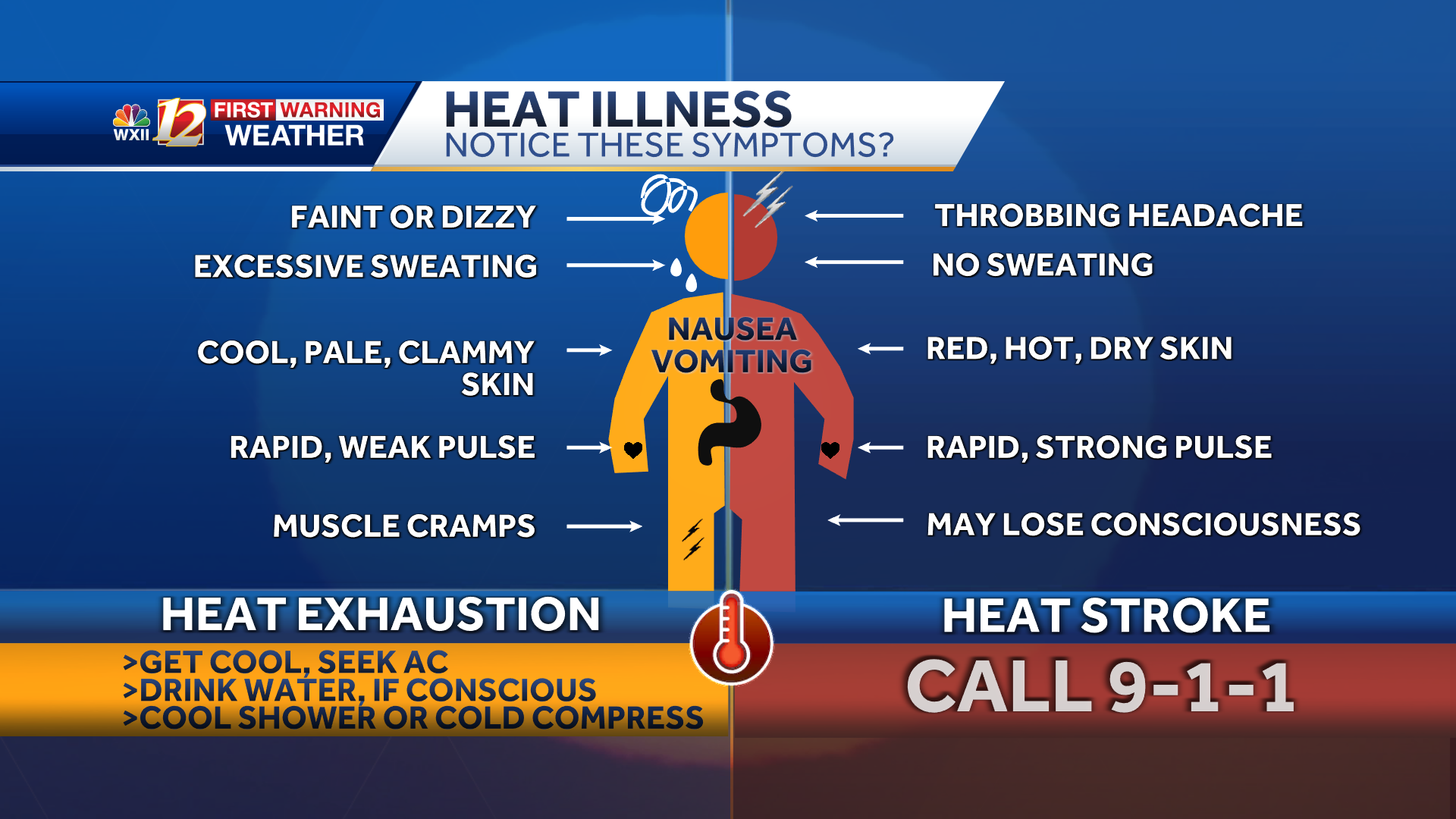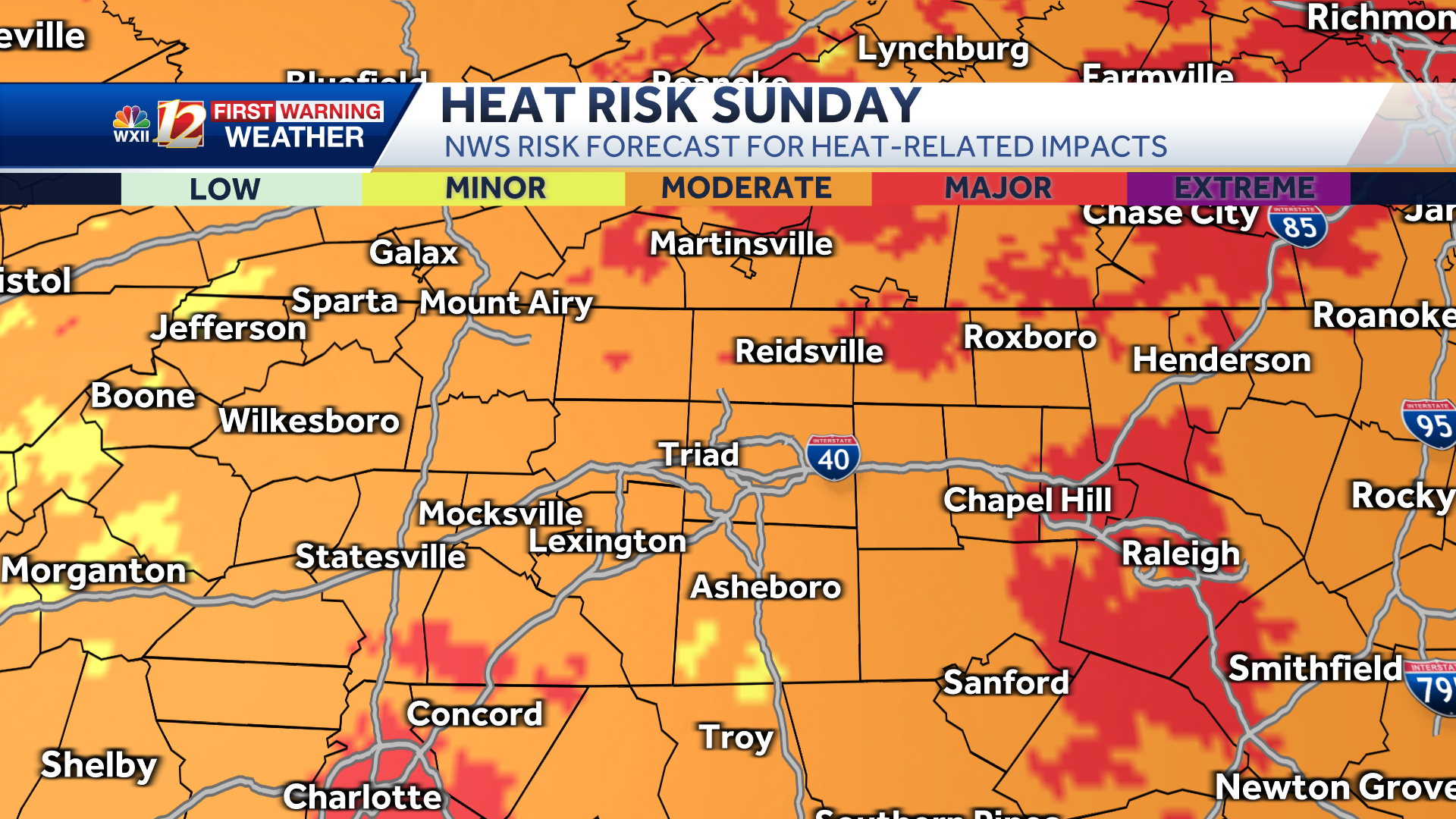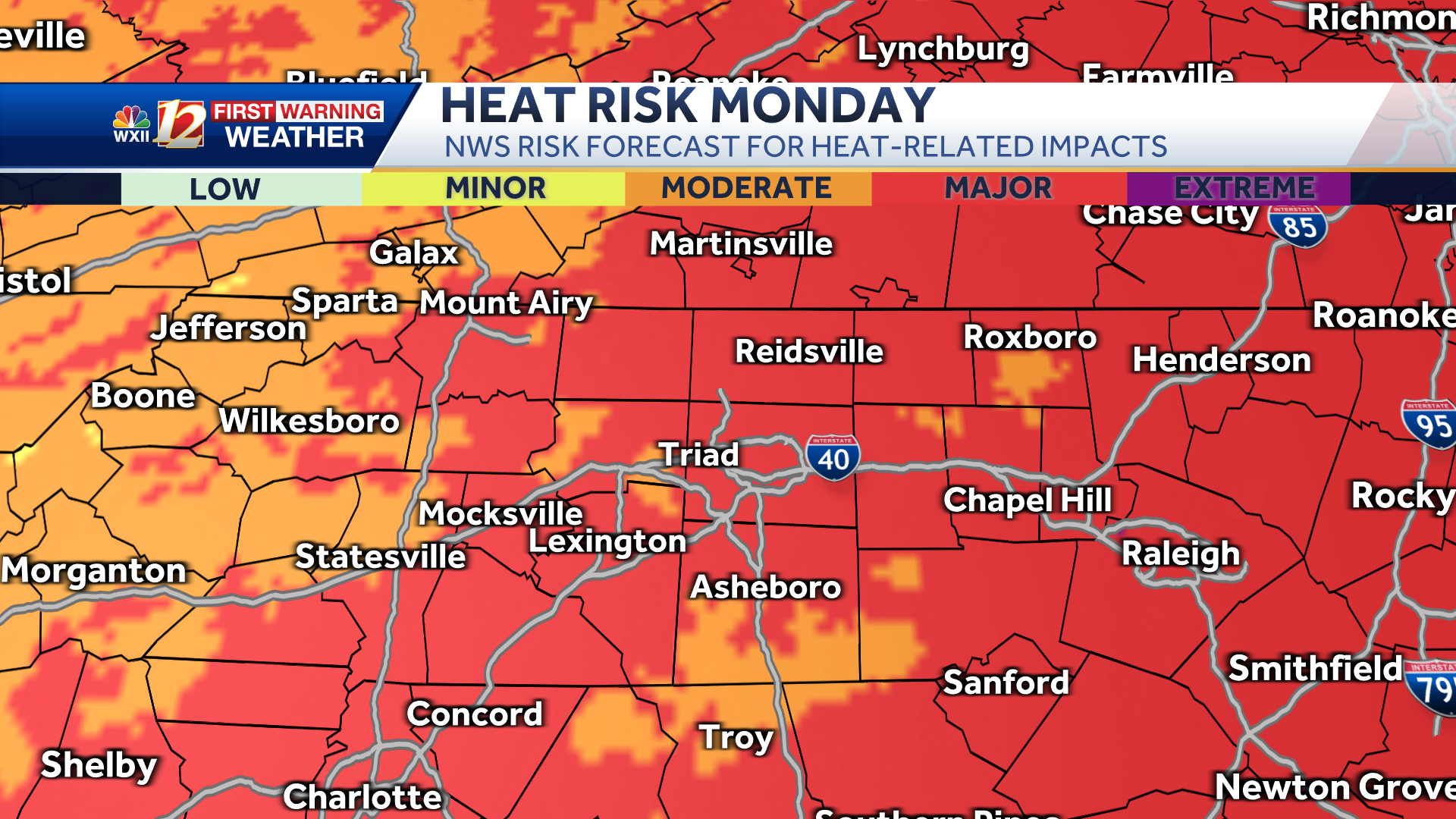Could Hot Weather Make You Ill in North Carolina? Heat Alerts May Be Imminent

 Sign up for our Newsletters
Sign up for our Newsletters
Heat Risk Climbing This Weekend and Next Week

While 90s are part of our typical summer temperature swings, there is a chance of an extended stretch of above normal highs in the lower to mid-90s for the last full week of June. Meteorologists at the National Weather Service issue the experimental heat risk forecasts for a 24-hour period during the spring and summer to help outdoor workers, athletes, the elderly, and other at-risk people prepare for the threat of heat-related illnesses. The forecasts are color coded corresponding to heat and health impact levels from 1-4: minor, moderate, major and extreme.

Higher Humidity
After a front brought slightly drier air and lower dewpoints Friday, higher humidity and hotter highs in the middle to upper 90s return next week, a ridge of high pressure aloft and at the surface will create a heat dome at the same time that Gulf moisture flows north over the Carolinas from the southwest.
Heat Email Alerts from NCDHHS
Are you on the Heat Alert list? Beginning in 2024, the North Carolina Department of Health and Human Services started a special program. Their North Carolina Climate and Health team started sending residents an alert via email when hot weather may impact health. Sign up for heat alerts here to help plan your summer and prevent heat illness. Residents choosing to receive alerts and subscribe to a county will receive heat alerts when the daily maximum heat index may meet or exceed the heat index threshold for that county’s region. Based on the new heat alert system, the Triad and Piedmont area temperatures need to meet the following thresholds for a heat alert to be issued:
- 94° May 1 through June 21
- 102° June 22 until August 11
- 98° August 12 until September 30
Preparing for the Heat
Temperatures also don't have to be what meteorologists might call extreme heat for it to impact your body. The physiological reaction to heat response also depends on the person. Things to consider are how much time will you be exerting yourself outdoors, length of time in direct sunlight, how well hydrated you are prior to heat exposure, and whether you may have underlying health issues. Here are some ways to prepare for the heat.
Adjust activity schedules to be outdoors during the milder hours of the day before 10 a.m. and after 8 p.m.
- Drink plenty of water and check with your doctor on whether electrolytes may help you with hydration especially if you are exposed to the heat while exerting yourself.
- Young children, adults older than 65, and others with health issues may have more difficulty regulating their body temperature.
- Plan to take breaks from the heat in air-conditioned spaces.
- Use a fan to keep air circulating indoors.
- Wear lightweight and loose-fitting clothing when outdoors.
- Provide cool spaces for pets, and refill water bowls.
- Avoid afternoon pet walks! Please walk pets early in the morning and after sunset.
- Exposure to heat contributes to cardiovascular and pulmonary emergencies, especially as humidity and temperature values rise together.
How hot? Check the latest forecast for the next seven days here. For more on how to prevent dehydration, view this weather story here.
TOP STORIES FROM WXII:
Special edition Stanley tumblers are selling out, but these are still in stock
READ THE FULL STORY: Could hot weather make you sick in North Carolina? Heat alerts may be issued soon
CHECK OUT WXII: Get the latest Greensboro, High Point and Winston-Salem news of the day. Catch the top stories, sports and weather from the team at WXII12.
Post a Comment for "Could Hot Weather Make You Ill in North Carolina? Heat Alerts May Be Imminent"
Post a Comment